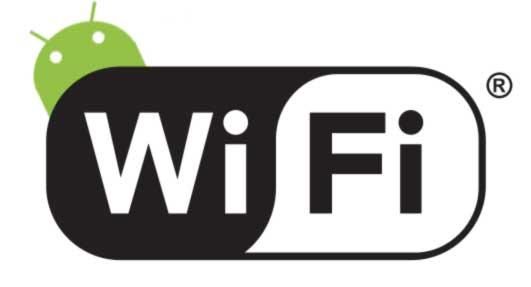Yesterday I wrote an article about the five things you should do right away after you get a new Android-powered smartphone. One of my recommendations was that you turn WiFi on as soon as you can — for a few reasons.
The theory is that WiFi is generally faster than 3G, and can be faster than 4G in practical use. Using WiFi can save your 3G/4G data for when you need it: when you're away from a WiFi bubble.
A few readers joined the conversation with comments like their 4G connection is faster than their WiFi, and if they're paying for 3G/4G data, they deserve to use it. Fair comments!
If your cellular data is faster than WiFi, one of WiFi's biggest attractions goes out the window. If you don't regularly hit your data or throttling cap, you may not need to fall back on WiFi to offset your usage.
Where our readers jumped in was on whether WiFi really extends your battery life. He said, "Your advice that WiFi reduces battery usage conflicts with virtually everything that I've heard ... T-Mobile's tech support ... said that they ... don't recommend using WiFi as a means to minimize the rapid depletion of your battery life." (Kirk M.)
I know, it sounds sort of crazy.
Probably the best explanation to the differing opinions is that there are a lot of variables that could make or break my suggestion to keep WiFi on as viable "battery saver".
Distance to the WAP
If your WiFi signal is fairly strong, it's pretty energy efficient. It's when your signal strength is fairly low, your battery life can suffer. The weaker the signal, the more power it takes to transmit and receive data. Interestingly, the same logic applies to cellular data.
Presence of WiFi
If you are regularly under a WiFi bubble, this point doesn't apply to you. If, however, you spend a good deal of time away from a WAP, your phone may spend a lot of time (and energy) simply looking for a wireless access point. That can sap your battery somewhat quickly. In this scenario, turning off your WiFi can help extend your battery life. Using an app like Y5 can automate the turning on and off of your WiFi radio, so you can get the best of both scenarios.
Screen On versus Screen Off
Most of the time, when your screen is off, you don't need to have your WiFi radio on. You're not surfing the web or anything, right? Most Android's I've used set this behavior by default — except those from T-Mobile, which is why T-Mobile support may have recommended turning WiFi off completely.
Many T-Mobile phones have a cool feature called WiFi Calling which lets you make and receive phone calls using your WiFi connection. This comes in very handy when you're in an area with low cellular reception (or none at all), or even in another country and don't want to use international minutes. To be able to receive phone calls over WiFi your phone has to be connected via WiFi — including when the screen is off, which (you guessed it) can gobble up your battery. You can change this behavior in your Settings under WiFi. Look in the Advanced settings for "Keep WiFi on during sleep" (when the screen is off). I have mine set to "Only when plugged in" so I can sync RSS and podcasts at night (while charging) via WiFi.
The Bottom Line
I've used a LOT of phones. Each of them has seen better battery life when WiFi is on (but off when the screen is off). However, as many of you have pointed out, there can be a lot of variables involved, and your experience may vary.
I go from my home WiFi, to my work WiFi, to WiFi at my relative's houses. Pretty much the only time I'm not under WiFi is when I'm driving. In my usage scenario, WiFi really helps prolong battery life.
Since many of you joined the conversation with experiences to the contrary, the best advice I have to our readers is try it for yourself. Go a couple days without WiFi and record your battery life. Then, go a couple days with WiFi and record your results. Compare the two and see which works better for you. Your environments and your usage may be different than mine.
Since pocketnow is for you, our readers, we'd love to hear if you're going to try the WiFi experiment for yourself, what your WiFi environments are like, and what your results are. Don't forget to tell us what phone you're using, too!
And to all those who commented and wrote in, thanks for your suggestions and feedback!

